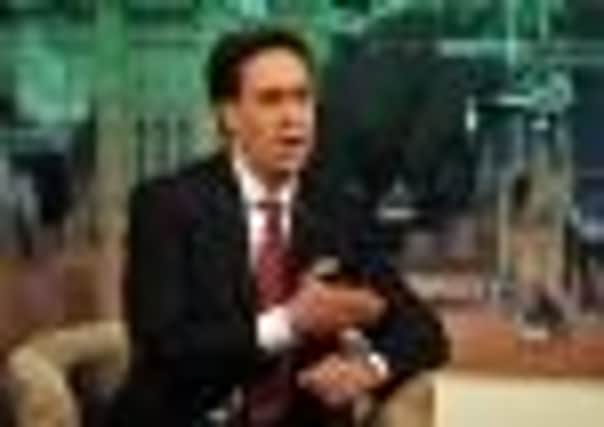Beleaguered Labour leader Ed Miliband defiant as own MPs brief against him


A defiant Mr Miliband insisted he was right in backing a pay freeze for public sector workers, despite the furious reaction from trade union leaders, who accused him of betraying the party’s core support.
Asked about the prospect that unions – which provide 90 per cent of Labour’s funding – might disaffiliate from the party, Mr Miliband said: “They have to make their own decision. I am not going to change my policy in the face of threats. I am going to do the right thing.”
Advertisement
Hide AdAdvertisement
Hide AdHe added: “Of course there are going to be some people in the party who don’t like it but I’m afraid that’s tough. We need to do the right thing, the responsible thing and that’s what I’m going to do.”


He was responding to an assault led by Unite leader Len McCluskey, who went public with his anger in a newspaper article to warn that Mr Miliband was setting Labour on course for electoral “disaster” and undermining his own leadership.
And GMB general secretary Paul Kenny wrote to the union’s senior officials saying the new policy could have a “profound impact” on its relationship with the Labour Party.
Conservatives would be “rubbing their hands in glee” at the “serious mistake” made by Labour’s high command, said the message.
“I have spoken to Ed Miliband and Ed Balls to ensure they were aware of how wrong I think the policy they are now following is,” wrote Mr Kenny.
“It is now time for careful consideration and thought before the wider discussions begin on the long-term implications this new stance by the party has on GMB affiliation.”
And as Mr Miliband prepared for a crucial PMQs today – a stage on which he has regularly been accused of underperforming – backbenchers were privately briefing against him.
With only 32 MPs needed to call a new leadership ballot, there was speculation in Westminster about a contest between shadow home secretary Yvette Cooper and former Scottish Secretary Jim Murphy, although some hoped David Miliband might be persuaded to come back.
Advertisement
Hide AdAdvertisement
Hide AdBut Ed Miliband said Labour continued to believe that the government was going “too far and too fast” in imposing cuts on public services.
He said Chancellor George Osborne’s autumn statement had made it clear that the failure of coalition economic policies would mean Labour inheriting a deficit if it returned to power in 2015.
“Given the economic mess they are creating and we will inherit if we win the next election, it would be irresponsible for us to promise now to reverse these cuts in three and a half years’ time,” said Mr Miliband.
“We have got to convince people of two things at the next general election: that we are on their side and will do more for them than our opponents; but also that we can do so in a fiscally credible way.
“That has always been a challenge for the Labour Party. It’s a challenge I am determined we will confront and surmount.”
Asked if he ever thought the party might do better if he stood down as leader, Mr Miliband responded: “That doesn’t arise.”
Mr McCluskey and Mr Kenny were instrumental in helping Mr Miliband beat his brother David to the leadership last year.
He won despite the fact that David was backed by more MPs and ordinary party members because of his strong support in the union part of the electoral college.
In addition, there were concerns about the impact on party funding, with Labour already £10 million in debt. Last year, more than 90 per cent of the £9.1m it received came from unions.